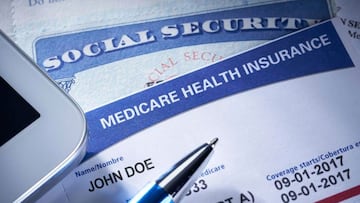Do I automatically get Medicare when I turn 65?
Americans are eligible to sign up for Medicare when they turn 65, whether or not your coverage begins automatically depends on a couple factors.

When you turn 65, you will need to register for Medicare coverage if you began receiving Social Security Benefits or Railroad Retirement Benefits four months or less from your 65th birthday. Those who have been receiving federal benefits at least 4 months prior to their 65th birthday will be automatically enrolled in both Medicare Part A and Part B.
Likewise, those who are already have Original Medicare when they turn 65 will continue to have the same coverage. For those who are required to sign up, to avoid any penalties you will need to visit you local Social Security office or use the administration’s online services at the Social Security Administration Medicare Benefits’ web page.
Also see:
Is it mandatory to go on Medicare when you turn 65?
While most seniors are eager to enroll in Medicare at 65, some wonder if it is the right choice for them. The question of whether or not Medicare enrollment at 65 is mandatory depends on various factors.
Each individual’s Initial Enrolment Period (IEP) covers a seven-month window around their 65th birthday; encompassing the three months before and after their birthday month. This means that someone born in June would have from 1 March to 30 September to take advantage of the IEP. However signing up in your birthday month or after will result in a delay in your coverage starting. Missing this window could result in higher insurance costs, but there are situations where you can opt out and you must contact the Social Security Administration.
Part A and B
Part A covers most hospital-related services like inpatient care in a hospital, skilled nursing facility care, hospice care, and home health care. You cannot receive Social Security benefits if you are not enrolled in Part A. So, for those 65 and older who are continuing to work at an organization with more than twenty employees, enrollment in Part A can be delayed until retirement.
#DYK you can get important #Medicare info on-the-go? Sign up for Medicare emails at https://t.co/7Sw0Nqx0gQ and we’ll send you email reminders and updates. pic.twitter.com/FeE8j2S8c5
— Medicare.gov (@MedicareGov) April 26, 2022
Employment at a small business or organization
However, if your employer provides health insurance to less than twenty people, those over 65 are required to enroll in Medicare Part A and B. In 2022, most seniors enrolled in Part B are paying a monthly premium of $170.10, which is deducted from their Social Security benefits.
Since most people do not pay a premium for Part A, there are fewer penalties for opting out if a valid reason can be provided. Additionally, the federal government encourages many to enroll in Medicare Part A even if they receive coverage through their employer because most Social Security beneficiaries pay no premium for Part A.
Health Savings Accounts
Once you enroll in Medicare you can no longer contribute to a Health Savings Account (HSA).
The funds deposited into an HSA do not expire, and many workers contribute to these accounts and rely on them in retirement to cover the costs of a Medicare Advantage Plan or a Part D prescription drug plan.
At 65, seniors can take advantage of tax-free benefits when withdrawing from funds from an HSA. However, funds deposited in an HSA cannot be used to purchase a Medigap coverage plan.
A factsheet on the utility of HSAs for seniors provided by Wellsely University highlights that “Using HSA money is an especially good method to pay for Medicare as it is challenging to pay for Medicare with pre-tax dollars.” Since Medicare premiums are automatically deducted for Social Security checks, an HSA can be a helpful way to “reimburse yourself directly.”
#DYK you may not need to visit your local Social Security office? See what you can do online: https://t.co/XOrnWbKpqC #KnowBeforeYouGo pic.twitter.com/CCQRNLZTwv
— Social Security (@SocialSecurity) April 14, 2022
Penalities for opting out of Part B
Related stories
Should one choose to forgo or opt-out of Part B, substantial fees, and penalties can be applied. For each year that one does not enroll in the required parts of Medicare, they can see a fee worth ten percent of the Medicare Part B premium deducted from their Social Security checks.
Making the decision to opt-out
Considering the information and requirements, it is important for seniors to evaluate whether the costs are worth the expense. As more seniors are required to wait until 67 to retire to receive the maximum Social Security benefit, more individuals may have to weigh the pros and cons of opting out.
